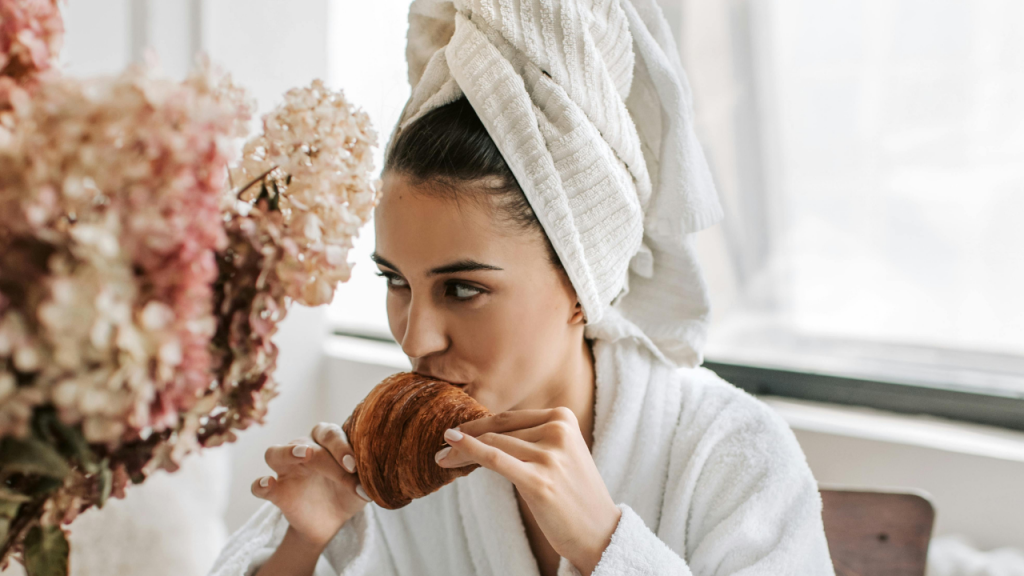In the realm of healthcare, conversations around vaginal health are often muted, but they are undeniably crucial.
Aziwe Booi, a Registered Dietitian based in Bryanston, Johannesburg, sheds light on the vital connection between nutrition and vaginal well-being. She shares insights into the influence of diet on vaginal health and offers practical dietary recommendations.
Aziwe’s practice, nestled in the heart of Johannesburg at the CramerView Village Centre within the beautiful One Aid Health medical center, is a beacon of holistic care. Collaborating closely with practitioners like Dr. Carmen Briner, she emphasizes the importance of a comprehensive approach to patient well-being. “It is really exciting to work with doctors who are just as dedicated to collaborative holistic care of patients,” she says.
Passionate about women’s health, Aziwe recognises the transformative power of nutrition in managing various conditions. “So many conditions can be managed and put into remission through nutrition intervention!” she exclaims. Her enthusiasm stems from the realisation that women’s health is finally ascending to the forefront of nutritional science, igniting a wave of exploration and discovery.
When delving into the nexus between foods and vaginal health, she highlights the pivotal role of a balanced diet. “A healthy and balanced diet is crucial to support your vaginal health,” she asserts. The key lies in nurturing the delicate ecosystem of bacteria within the vagina, akin to the gut microbiome. Here, prebiotics, probiotics, and dietary fiber emerge as dietary superheroes.
Probiotics, heralded for their beneficial effects on gut health, also wield substantial influence over vaginal microbiota. Aziwe references research indicating their efficacy in managing conditions like Bacterial Vaginosis (BV) and Vulvovaginal Candidiasis (VC). “Probiotics have been seen to be beneficial in improving recovery of BV,” she affirms.
But which foods hold the keys to vaginal vitality? Aziwe advocates for a repertoire of probiotic-rich options, including yoghurt, sauerkraut, kefir, kombucha, and amasi. These fermented foods infuse the vaginal microbiome with active bacteria, bolstering its defenses. Complementing probiotics, prebiotic-rich foods such as onions, garlic, leaks, artichokes, and bananas nourish the beneficial bacteria, fostering a flourishing ecosystem.
In contrast, she cautions against the pitfalls of highly processed foods laden with refined sugars, saturated fats, and excess salt. These dietary culprits not only compromise overall health but also impact vaginal odour. Similarly, inadequate hydration exacerbates bacterial overgrowth, amplifying unwanted odours.
For women keen on fine-tuning their dietary habits to support vaginal health, Aziwe offers actionable advice. Incorporating dairy products with bacterial strains, fermented foods, ample fruits and vegetables, hydration, lean proteins, and healthy fats form the cornerstone of a vaginal-friendly diet. Moreover, vigilance towards any unusual odours signals the need for professional evaluation, underscoring the importance of regular gynecological consultations.
Aziwe underscores the significance of holistic feminine hygiene and proactive healthcare. “There are other things that can impact your vaginal health,” she cautions, urging women to prioritise their well-being and seek timely medical intervention for any concerns.
In a world where women’s health is increasingly in focus, Aziwe Booi’s advocacy for nutritional empowerment resonates profoundly. Through education, awareness, and proactive lifestyle choices, women can reclaim agency over their vaginal health, nurturing a harmonious balance between nutrition and well-being.
Aziwe’s social media platforms are filled with educational and eye-opening content, as well as delicious and nutritious recipes.
Give her a follow on Instagram, Facebook and TikTok, or visit her website.
ALSO SEE: Understand how certain foods can influence menopausal symptoms
Understand how certain foods can influence menopausal symptoms
Feature image: Pexels

